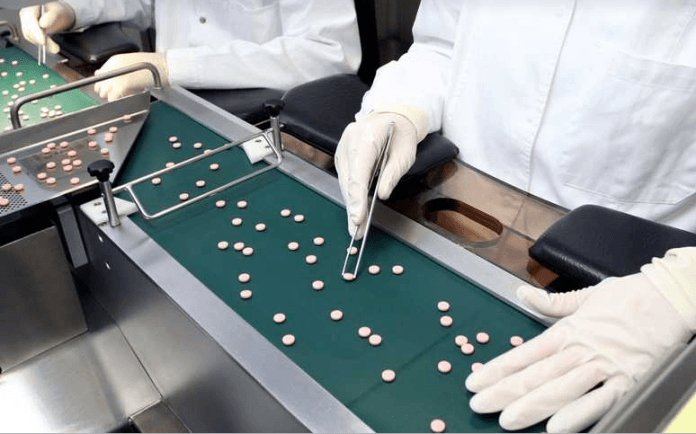The recent drug shortage crisis in Kuwait opened the door to questions about the reasons why Kuwait dropped to the bottom of the list of countries in the region that manufacture its own medicine. Why does Kuwait not manufacture its own medicine? What are the obstacles facing the establishment of factories for medicines and medical supplies as long as the material capabilities are available?
According to the information obtained by the Al-Qabas daily, there is a single factory in Kuwait for medicines and medical supplies that does not meet 15 percent of the country’s medical needs, compared to 40 factories in the Kingdom of Saudi Arabia that cover 36 percent of the needs of the Saudi market, and 24 factories in the UAE that produce 1,715 pharmaceuticals that include medicines for all chronic diseases and others, and approximately 7 factories that produce more than 300 items of medicines and medical supplies in the Sultanate of Oman.
Health sources told the daily that the Ministry of Health has granted, in recent years, more than 12 licenses to establish factories for intravenous solutions and injection solutions for some medicines, as well as factories for drugs, supplies and medical consumables. However, the companies that obtained these licenses faced many obstacles that prevented the implementation of their pharmaceutical projects locally.
The sources said that the drug industry in Kuwait is one of the neglected files when drawing up health policies for Kuwait, and in government work programs, explaining that Kuwait is currently witnessing the manufacture and production of more than 160 pharmaceuticals and medical supplies from the only factory affiliated with a local company.
Regarding the most prominent obstacles to increasing the number of pharmaceutical factories in the country, the sources indicated that the slow documentary cycle, the length of procedures, routines and correspondence between government agencies are among the most prominent obstacles to the speedy establishment of medical factories, especially the procedures followed between the Ministry of Health, the Central Agency for Public Tenders and the Audit Bureau, which are related to requests for medicines, medical supplies and equipment, and what is related to approvals or not, whether those are manufactured inside Kuwait or even brought from abroad.
The sources revealed that there are other problems related to the lack of suitable places and sites for setting up factories in them, which requires facilitating procedures by the Public Authority for Industry, and other government agencies concerned with granting land licenses to local companies wishing to establish any medical factory, or even establish warehouses and stores for medicines and medical supplies explaining that its establishment contributes greatly to overcoming any emergency crises regarding the provision of medicines and medical supplies.
5 obstacles to the establishment of pharmaceutical factories in the country
— Not allocating and allocating new industrial lands for years
— Lack of availability of current places and sites for setting up factories
— Slow procedures and routine in correspondence with government agencies
— Failure to take advantage of material capabilities and the factors of time and development
— Absence of facilities provided to companies and investment in the experiences of others
The numbers game in the field of medical factories
— Only one medical factory in Kuwait covers 10-15% of its needs
— 40 medical factories in Saudi Arabia cover 36% of the needs of the Saudi market
— 24 medical factories in the UAE produce 1,715 pharmaceuticals and help reduce imports
— Seven medical factories in the Sultanate of Oman produce more than 300 types of medicines
Al-Qabas sources indicated that the Ministry of Health has recently obtained approvals related to presenting several practices before the regulatory authorities, related to medicines, medical supplies and equipment, including the practice of purchasing a substance that uses drugs (pills) to treat calcium and vitamin D deficiency in all departments in health centers and public hospitals.
This is in addition to purchasing laboratory materials for pneumonia tests for all laboratories, with the aim of reviewers conducting the tests without any delay or significant obstacles.

















